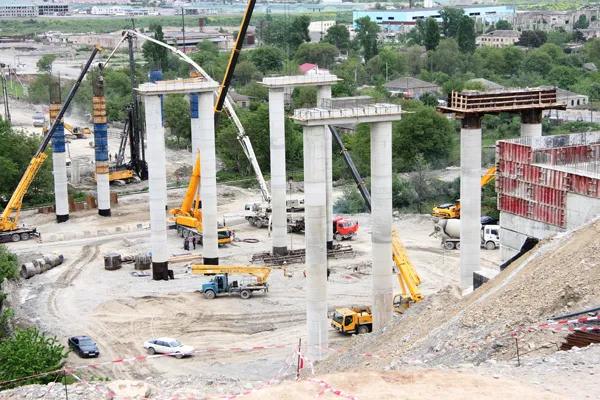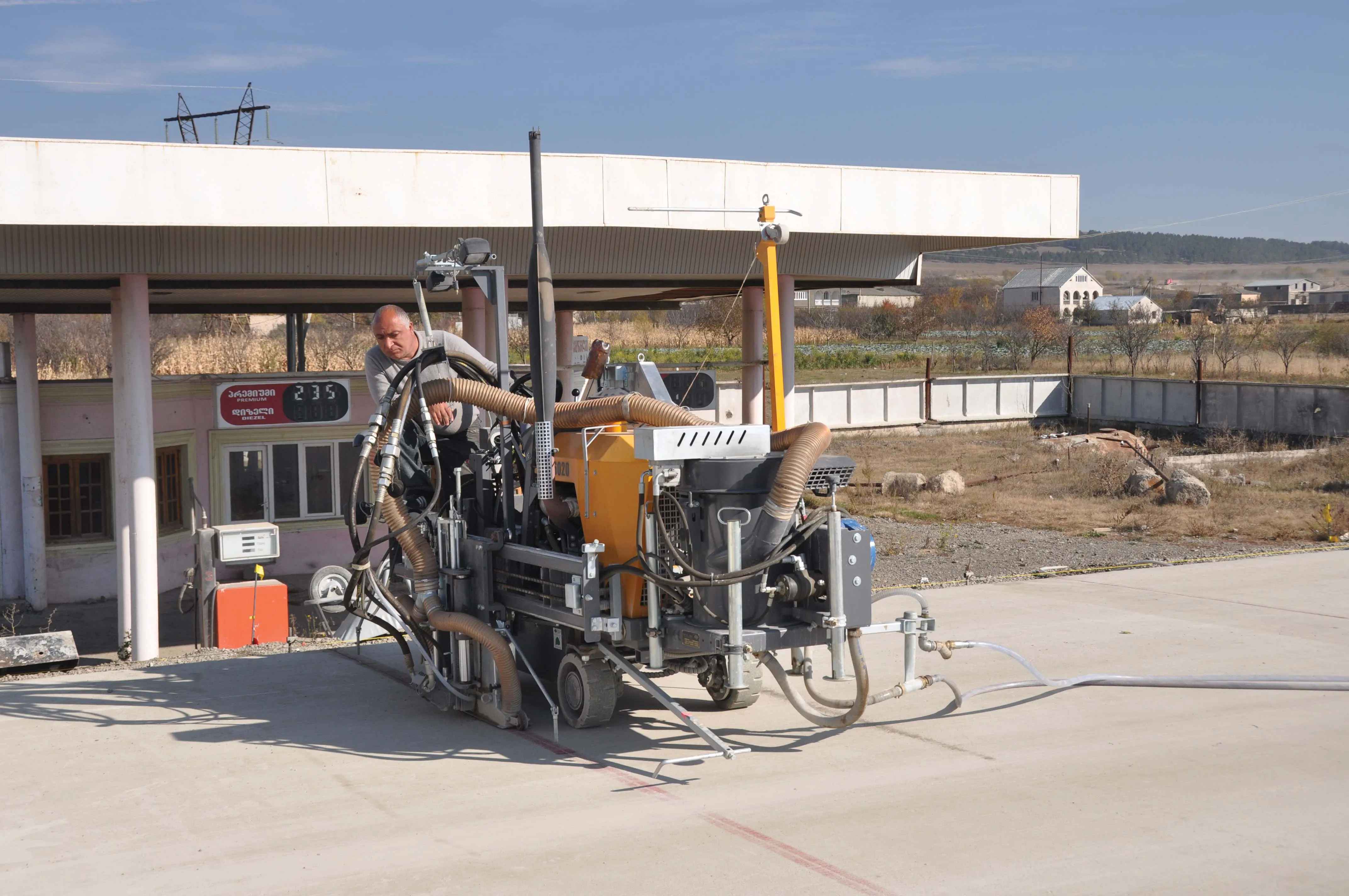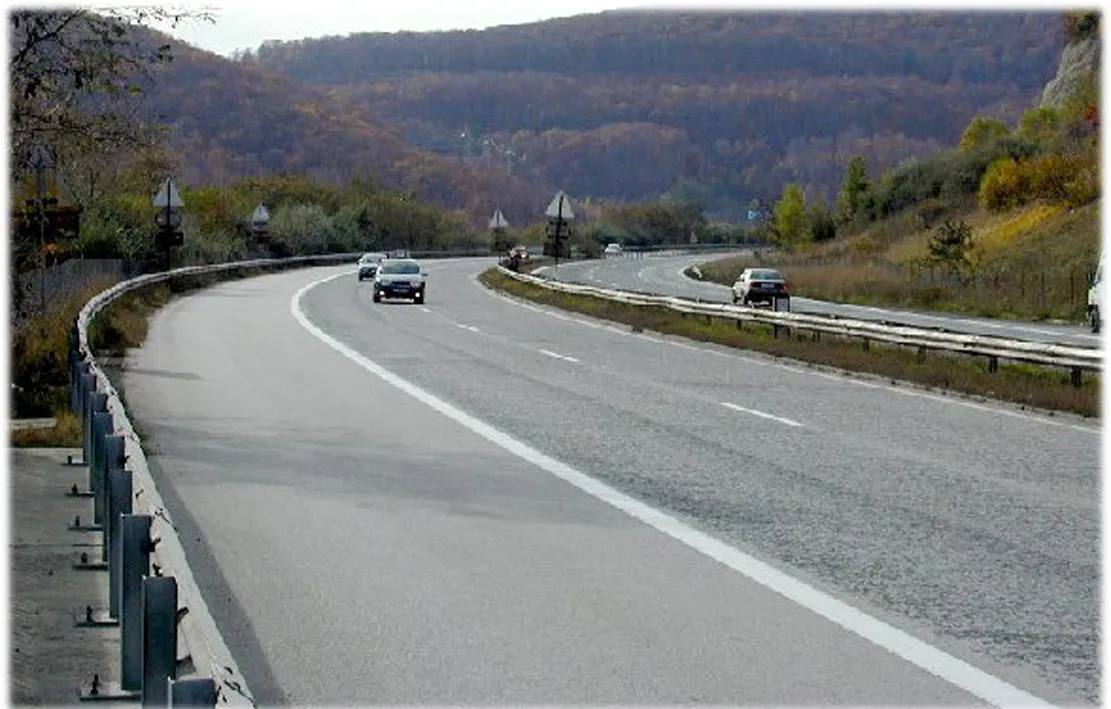One of the most important priorities of the Government of Georgia is the construction and rehabilitation of the East-West Highway in accordance with international standards.
February 17, 2012
Read time: 3 mins

One of the most important priorities of the Government of Georgia is the construction and rehabilitation of the East-West Highway in accordance with international standards.
Today, the highway is the main infrastructure of Georgia and its development influences the sustainability of the economy, national security and standard of living.
Indeed, in the near future planned investment in the highway will exceed US$1 billion, with one of the major plans being to upgrade it from two to four lanes.
Georgia is strategically located as a country connecting Europe and Asia, and the active participation of international organisations in the work gives the country the opportunity to develop and strengthen its status as a transit state, especially during a time of globalisation.
Development of the Georgian road network is in progress and the2332 World Bank, 943 Asian Development Bank (ADB), Japanese International Cooperation Agency (JICA), 1054 European Investment Bank (EIB), Chinese Development Bank (CDB) and the 1166 European Bank for Reconstruction and Development are among international donor organisations supporting the work.
Some 80km of highway has already been constructed, and currently construction of the 15km Sveneti-Ruisi section is underway, and this includes construction of two parallel bridges and tunnels each with a length of 880m.
Construction works are also in progress on a further two sections of the East-West Highway: the 17km Kutaisi and 15k Kobuleti bypasses.
The Poti-Anaklia 30km road section is part of the Black Sea Ring Motorway and construction works for this section will be started soon. By the end of 2013 it is planned construction of most of the East-West Highway connecting Turkey and Azerbaijan via Georgia will be completed.
Another major project is the rehabilitation of the Rikoti Tunnel, and full renovation and modernisation of the existing 1,722m long tunnel in accordance with international standards is planned.
The Tbilisi [capital]-Kutaisi Highway connecting the two major cities of Georgia runs through the pass in the rock-cut tunnel, which was constructed in 1982.
In parallel with the construction-rehabilitation of East-West Highway, the Georgian government, in cooperation with international organisations, plans to construct ancillary infrastructure to offer facilities for drivers such as food and essential products as well as providing overnight accommodation, refuelling and technical maintenance for vehicles and safe parking during long stop-overs on the whole East-West Highway.
"These facilities will ensure safety and efficient operation of international road forwarders. Appropriate works are ongoing on the highway and the first phase of construction of this kind of infrastructure will be completed in the near future. A total of 16 special service and rest centres from the Azerbaijan border to the border with the Republic of Turkey are planned to be constructed.
Today, the highway is the main infrastructure of Georgia and its development influences the sustainability of the economy, national security and standard of living.
Indeed, in the near future planned investment in the highway will exceed US$1 billion, with one of the major plans being to upgrade it from two to four lanes.
Georgia is strategically located as a country connecting Europe and Asia, and the active participation of international organisations in the work gives the country the opportunity to develop and strengthen its status as a transit state, especially during a time of globalisation.
Development of the Georgian road network is in progress and the
Some 80km of highway has already been constructed, and currently construction of the 15km Sveneti-Ruisi section is underway, and this includes construction of two parallel bridges and tunnels each with a length of 880m.
Construction works are also in progress on a further two sections of the East-West Highway: the 17km Kutaisi and 15k Kobuleti bypasses.
The Poti-Anaklia 30km road section is part of the Black Sea Ring Motorway and construction works for this section will be started soon. By the end of 2013 it is planned construction of most of the East-West Highway connecting Turkey and Azerbaijan via Georgia will be completed.
Another major project is the rehabilitation of the Rikoti Tunnel, and full renovation and modernisation of the existing 1,722m long tunnel in accordance with international standards is planned.
The Tbilisi [capital]-Kutaisi Highway connecting the two major cities of Georgia runs through the pass in the rock-cut tunnel, which was constructed in 1982.
In parallel with the construction-rehabilitation of East-West Highway, the Georgian government, in cooperation with international organisations, plans to construct ancillary infrastructure to offer facilities for drivers such as food and essential products as well as providing overnight accommodation, refuelling and technical maintenance for vehicles and safe parking during long stop-overs on the whole East-West Highway.
"These facilities will ensure safety and efficient operation of international road forwarders. Appropriate works are ongoing on the highway and the first phase of construction of this kind of infrastructure will be completed in the near future. A total of 16 special service and rest centres from the Azerbaijan border to the border with the Republic of Turkey are planned to be constructed.








